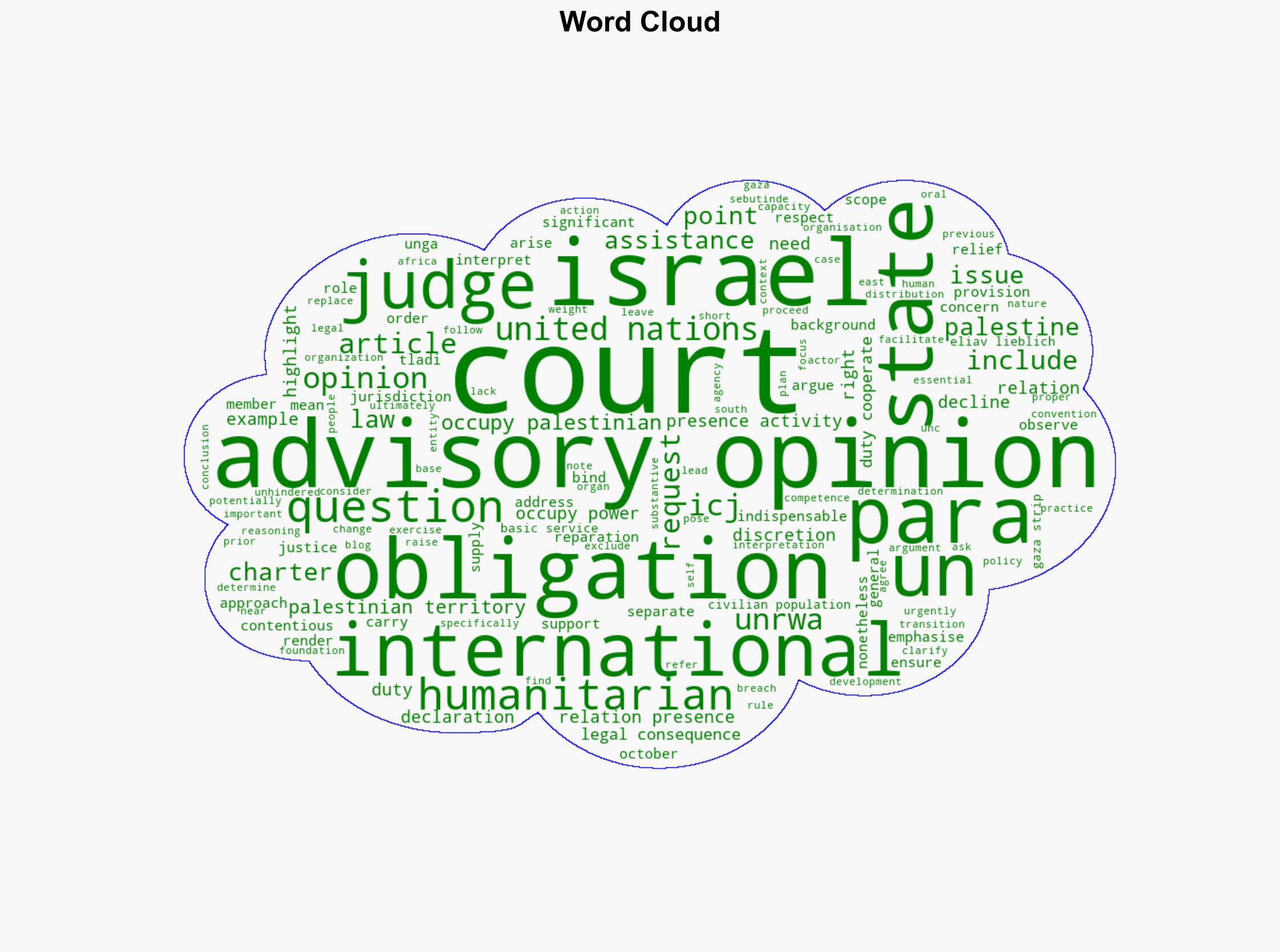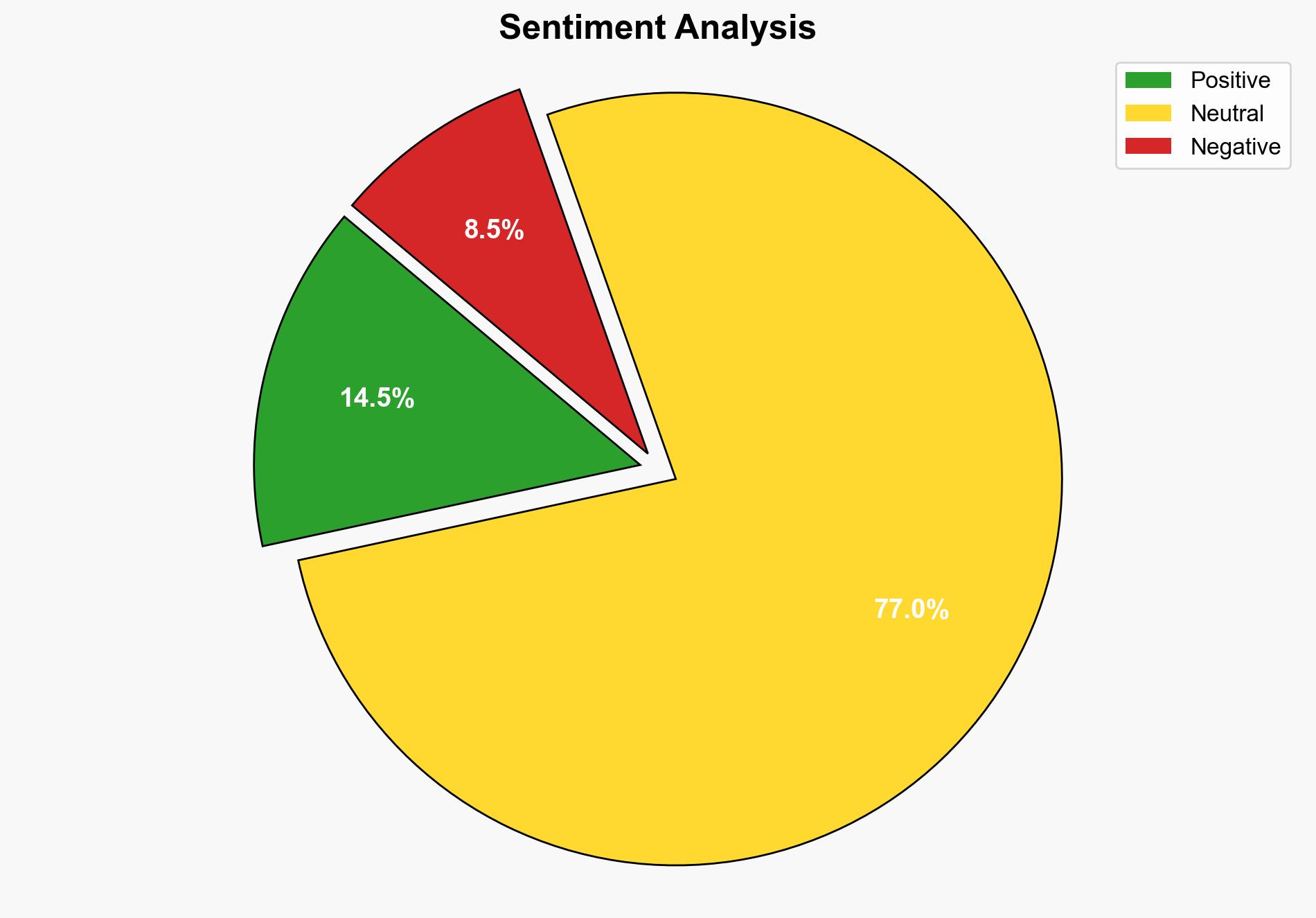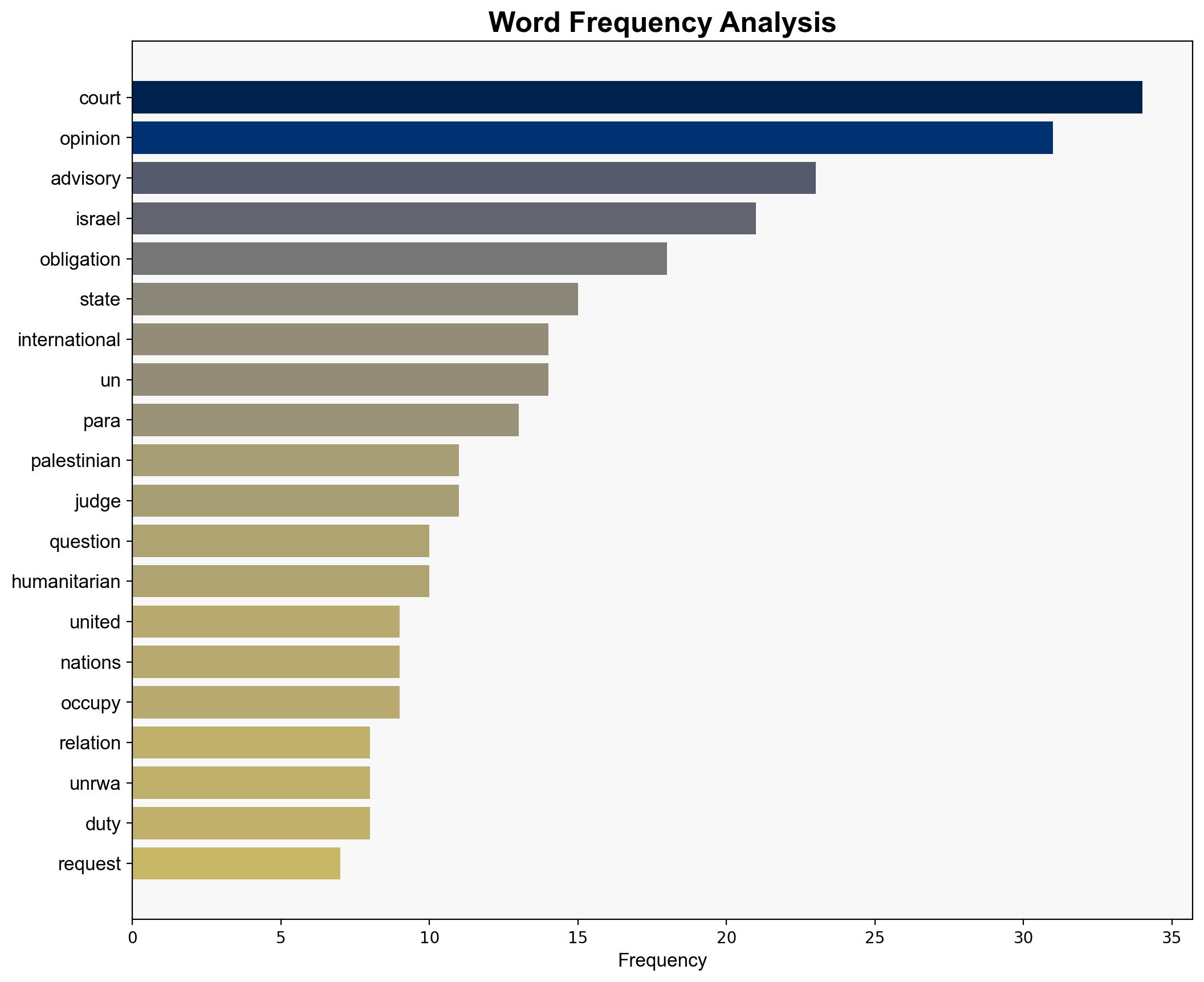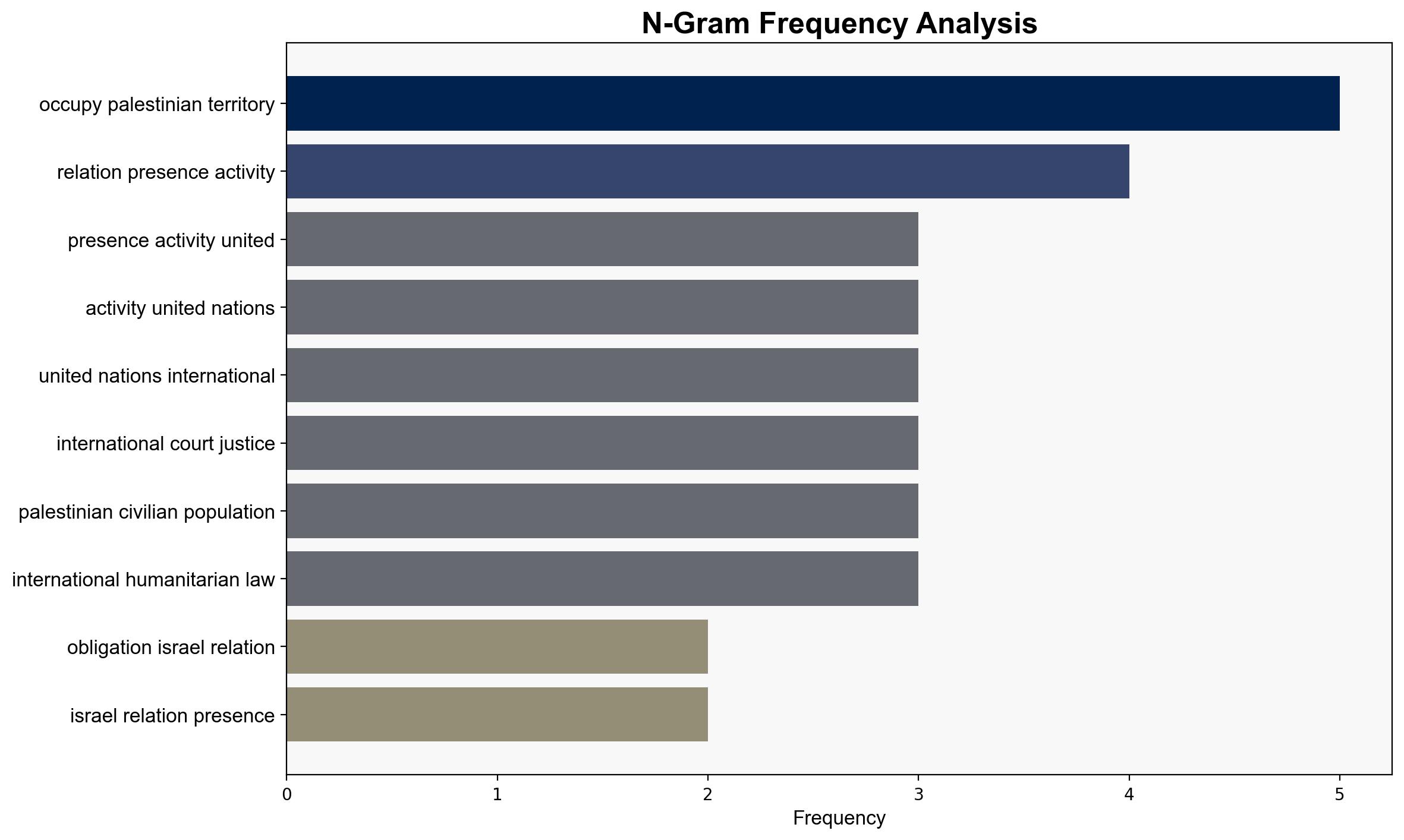Obligations of Israel in Relation to the Presence and Activities of the United Nations The International Court of Justices Advisory Opinion in a Nutshell – Opiniojuris.org
Published on: 2025-10-25
Intelligence Report: Obligations of Israel in Relation to the Presence and Activities of the United Nations The International Court of Justices Advisory Opinion in a Nutshell – Opiniojuris.org
1. BLUF (Bottom Line Up Front)
The International Court of Justice (ICJ) advisory opinion on Israel’s obligations in relation to the United Nations’ presence and activities in the occupied Palestinian territories presents two main hypotheses. The first hypothesis suggests that the ICJ’s opinion will reinforce international legal norms and obligations for Israel, potentially leading to increased international pressure. The second hypothesis posits that the opinion may have limited impact due to geopolitical complexities and existing contentious legal cases. The first hypothesis is better supported by the ICJ’s historical role in shaping international law. Confidence level: Moderate. Recommended action: Monitor international reactions and prepare for potential diplomatic engagements.
2. Competing Hypotheses
1. **Hypothesis 1**: The ICJ advisory opinion will strengthen international legal norms and obligations for Israel, leading to increased international pressure for compliance with UN mandates in the occupied territories.
2. **Hypothesis 2**: The ICJ advisory opinion will have limited impact due to geopolitical complexities, existing contentious legal cases, and potential non-compliance by Israel.
3. Key Assumptions and Red Flags
– **Assumptions for Hypothesis 1**: The ICJ’s opinion is respected and adhered to by international actors; there is a unified international response to enforce compliance.
– **Assumptions for Hypothesis 2**: Geopolitical interests and alliances will overshadow legal obligations; existing legal disputes will dilute the opinion’s impact.
– **Red Flags**: Potential bias in the ICJ’s decision-making process; lack of enforcement mechanisms for advisory opinions; Israel’s historical non-compliance with certain international mandates.
4. Implications and Strategic Risks
– **Implications**: Reinforcement of international legal norms could lead to increased diplomatic isolation for Israel or shifts in regional alliances.
– **Strategic Risks**: Escalation of tensions in the region; potential for increased legal and diplomatic disputes; impact on humanitarian aid and development assistance in the occupied territories.
5. Recommendations and Outlook
- Engage in diplomatic dialogue with key international stakeholders to assess potential shifts in policy and alliances.
- Prepare contingency plans for increased regional tensions or legal disputes.
- Scenario-based projections:
- Best: Unified international response leads to improved compliance and humanitarian conditions.
- Worst: Increased regional tensions and legal disputes exacerbate the humanitarian situation.
- Most Likely: Limited immediate impact with gradual shifts in international diplomatic efforts.
6. Key Individuals and Entities
– Marko Milanovic
– Eliav Lieblich
– Judge Sebutinde
7. Thematic Tags
national security threats, international law, geopolitical dynamics, humanitarian aid, regional focus




